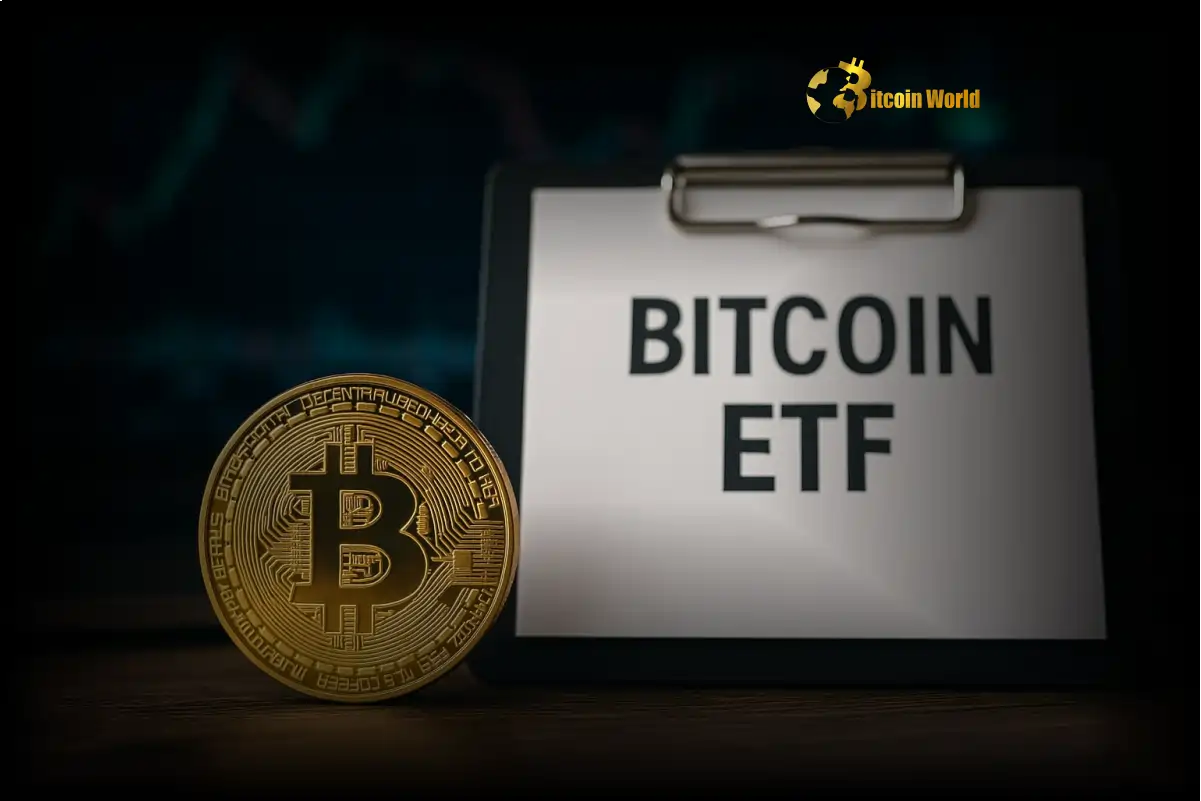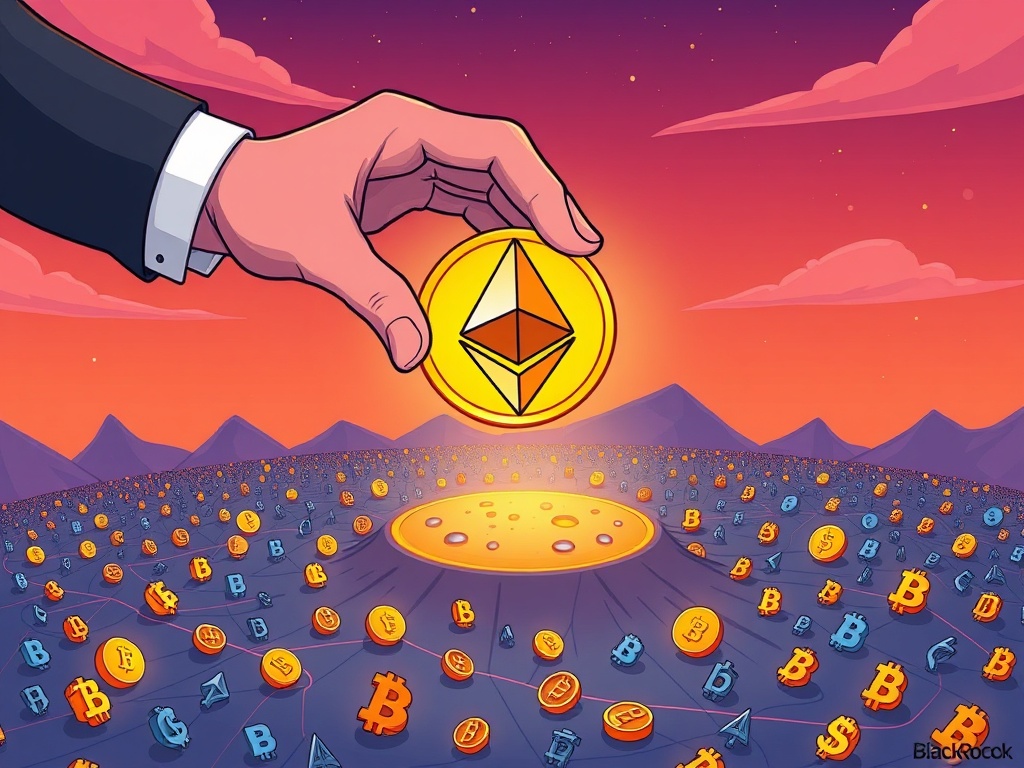BitcoinWorld

UAE AI Chips Deal Stalled: A Critical Blow to Global Tech Ambitions
In the rapidly evolving landscape of artificial intelligence, where technological prowess often dictates economic and geopolitical standing, a significant development has sent ripples through the global tech community. The United Arab Emirates’ ambitious deal to procure advanced UAE AI chips from leading U.S. semiconductor giants, most notably Nvidia, has reportedly been put on hold. This pause, driven by escalating U.S. national security concerns, highlights the intricate dance between technological advancement, economic ambition, and geopolitical rivalry. For those in the cryptocurrency space, understanding these macro-level tech shifts is crucial, as the underlying infrastructure for AI innovation often mirrors or influences the high-performance computing essential for blockchain technologies and digital asset markets.
Why is the UAE AI Chips Deal So Crucial?
The United Arab Emirates has been aggressively pursuing a strategy of economic diversification, moving beyond its traditional oil-based economy. Central to this vision is a significant investment in cutting-edge technologies, with artificial intelligence at the forefront. The proposed deal to acquire billions of dollars worth of advanced AI chips from companies like Nvidia was not merely a commercial transaction; it was a cornerstone of the UAE’s national AI strategy. These chips, particularly those designed for high-performance computing and complex AI model training, are the fundamental building blocks for developing sophisticated AI applications, fostering innovation hubs, and attracting global tech talent. Access to such advanced hardware is seen as vital for the UAE to:
- Accelerate AI Research and Development: Powering large language models, computer vision, and other complex AI algorithms requires immense computational power.
- Drive Economic Diversification: Creating new industries and job opportunities in AI, data science, and related fields.
- Enhance National Competitiveness: Positioning the UAE as a leader in the global AI race, attracting foreign investment and partnerships.
- Improve Public Services: Utilizing AI for smart city initiatives, healthcare, and governmental efficiency.
The reported halt in this deal therefore represents a significant hurdle for the UAE’s technological aspirations, forcing a re-evaluation of its supply chain strategies and international tech partnerships.
The Dominance of Nvidia AI and Geopolitical Tensions
Nvidia stands as the undisputed titan in the realm of AI accelerators, with its GPUs (Graphics Processing Units) being the preferred choice for training and deploying most advanced AI models globally. Their CUDA platform has created a powerful ecosystem, making their hardware indispensable for serious AI development. This dominance, however, places Nvidia squarely in the crosshairs of geopolitical tensions, particularly those between the United States and China.
The U.S. government has increasingly viewed advanced semiconductor technology as a critical component of national security, fearing that its transfer to rival nations could be exploited for military modernization or surveillance capabilities. Nvidia, while a U.S. company, operates in a global market, and its products are in high demand worldwide. The balancing act between maximizing shareholder value through global sales and complying with stringent export controls is a constant challenge for the company. The reported pause in the UAE deal underscores how deeply these geopolitical currents affect even the most commercially successful tech companies, forcing them to navigate a complex web of international regulations and diplomatic pressures. Nvidia has already had to design specific, less powerful chips for the Chinese market to comply with existing U.S. restrictions, indicating the direct impact of these policies on their revenue streams and product development cycles.
Understanding the Scope of Chip Export Restrictions
The concept of chip export restrictions has become a central theme in global tech policy. These restrictions are primarily aimed at preventing advanced technology from falling into the hands of adversaries, particularly China, which the U.S. views as a strategic competitor. The concerns are multi-faceted:
- Military Applications: Advanced AI chips can power sophisticated military systems, enhance surveillance capabilities, and accelerate the development of autonomous weapons.
- Dual-Use Technology: Many AI technologies have both civilian and military applications, making it difficult to control their end-use.
- Technological Parity: The U.S. aims to maintain a significant technological lead, especially in critical areas like AI and advanced computing.
- Human Rights Concerns: There are also concerns that advanced AI capabilities could be used for mass surveillance and human rights abuses by authoritarian regimes.
The U.S. government has already implemented several rounds of export controls targeting China, limiting its access to high-end semiconductors, chip-making equipment, and related software. The Wall Street Journal’s report indicates that the U.S. concern with the UAE deal stems from the potential for these chips to be re-exported or smuggled to China, circumventing existing controls. This ‘leakage’ risk is a persistent headache for U.S. policymakers. The rumored consideration of imposing chip export restrictions on other countries like Thailand and Malaysia, and Malaysia’s recent introduction of an export permit requirement for U.S. AI chips, further illustrate the broadening scope of these controls and the U.S.’s determination to tighten the net.
The Core of National Security Concerns
At the heart of the stalled UAE-Nvidia deal lies a fundamental U.S. national security imperative: preventing advanced AI capabilities from aiding China’s military modernization or its authoritarian surveillance state. The U.S. government’s apprehension is rooted in intelligence assessments suggesting that Beijing is actively seeking to acquire cutting-edge technologies, by any means necessary, to advance its strategic objectives. This includes leveraging both overt commercial channels and covert networks to bypass restrictions.
Officials from the UAE and Saudi Arabia had reportedly assured the U.S. that they had robust safeguards in place to prevent any diversion of chips. However, the increasing sophistication of smuggling networks and the high value placed on these chips by China have seemingly heightened U.S. skepticism. The concern isn’t necessarily about the UAE’s direct intent, but rather the potential for the chips to become part of a complex global supply chain that could eventually lead them to unintended destinations. This highlights a broader shift in U.S. policy, where the mere possibility of circumvention is enough to trigger a halt, rather than relying solely on partner assurances. This cautious approach reflects a deepening understanding of the geopolitical stakes involved in the global AI race.
Navigating the Intensifying US China Tech War
The stalled UAE deal is but one skirmish in the broader, intensifying US China tech war. This is a multi-front conflict spanning semiconductors, AI, telecommunications, quantum computing, and biotechnology. Both nations recognize that technological supremacy will define global power dynamics in the 21st century. The U.S. strategy involves a combination of:
- Export Controls: Restricting China’s access to critical technologies and manufacturing equipment.
- Domestic Investment: Pouring resources into U.S. semiconductor manufacturing and AI research through initiatives like the CHIPS Act.
- Alliances: Working with allies (e.g., Japan, South Korea, Netherlands) to coordinate export controls and build resilient supply chains.
- De-risking: Encouraging companies to diversify their supply chains away from China.
China, in turn, is responding with massive domestic investments in its semiconductor industry, aiming for self-sufficiency, and aggressively pursuing AI development. The friction over the UAE deal underscores the global ramifications of this rivalry. Countries like the UAE find themselves caught in the middle, attempting to pursue their own national interests while navigating the complex geopolitical landscape shaped by these two tech superpowers. The outcome of this tech war will not only determine which nation leads in AI innovation but also reshape global trade, supply chains, and international relations for decades to come.
Challenges and Implications for the Global Tech Landscape
The reported hold on the UAE’s AI chip deal presents a myriad of challenges and implications for various stakeholders:
- For the UAE: It could force a recalculation of its AI strategy, potentially delaying its ambitious projects. It may also lead the UAE to explore alternative suppliers or even invest more heavily in indigenous AI chip development, though this is a long-term and costly endeavor.
- For Nvidia and Other Semiconductor Companies: While U.S. export controls are designed to protect national security, they inevitably impact the revenue and global market access of American tech companies. Nvidia, a global leader, must constantly adapt its sales strategies to comply with an ever-evolving regulatory landscape, potentially sacrificing significant sales opportunities.
- For Global Supply Chains: These restrictions highlight the fragility of global tech supply chains. As countries like the U.S. exert more control over critical components, it can lead to fragmentation, increased costs, and slower innovation globally.
- For International Cooperation: The incident could strain diplomatic relations, particularly with allies and partners who feel their sovereign economic development is being constrained by U.S. geopolitical objectives.
- For the AI Industry: A restricted flow of advanced chips could slow down the pace of AI innovation in certain regions, potentially creating a two-tiered system where only a few nations have access to the most powerful computing resources.
The situation also raises questions about the future of global technology transfer and the extent to which national security concerns will continue to dictate commercial transactions in critical sectors.
What’s Next? Navigating the Uncertainty
The future of the UAE’s AI chip deal remains uncertain. While assurances were reportedly given by UAE and Saudi Arabian officials regarding safeguards, the U.S. seems to be taking a more stringent approach, prioritizing prevention over post-facto remediation. Potential next steps could include:
- Enhanced Verification Protocols: The U.S. might demand more robust, verifiable end-use monitoring systems from the UAE to ensure chips do not reach unintended destinations.
- Diplomatic Negotiations: Intensive diplomatic efforts will likely be underway to find a mutually agreeable solution that addresses U.S. security concerns while allowing the UAE to pursue its AI ambitions.
- Alternative Sourcing: The UAE may explore partnerships with other nations or companies not subject to U.S. export controls, though finding alternatives to Nvidia’s top-tier AI chips is challenging.
- Domestic Development: A long-term strategy for the UAE could involve significant investment in its own semiconductor industry, reducing reliance on foreign suppliers.
The situation serves as a stark reminder that in the age of advanced technology, economic partnerships are inextricably linked to geopolitical realities. The outcome of this particular deal will set a precedent for how nations balance their economic growth with global security concerns in the race for AI dominance.
Conclusion: A Precedent in the Global AI Race
The reported halt in the UAE’s deal to acquire advanced UAE AI chips from Nvidia is more than just a commercial setback; it’s a significant indicator of the escalating geopolitical tensions surrounding artificial intelligence. Driven by U.S. national security concerns over potential chip export restrictions to China, this development underscores the immense strategic value placed on advanced semiconductors. As the US China tech war intensifies, nations like the UAE find themselves navigating a complex landscape where technological ambition must contend with the realities of global power dynamics. The incident highlights the critical importance of secure supply chains, the pervasive influence of Nvidia AI technology, and the continuous challenges posed by chip export restrictions on global innovation and cooperation. The world watches closely as these critical decisions shape the future of AI and international relations.
To learn more about the latest AI market trends, explore our article on key developments shaping AI features.
This post UAE AI Chips Deal Stalled: A Critical Blow to Global Tech Ambitions first appeared on BitcoinWorld and is written by Editorial Team





